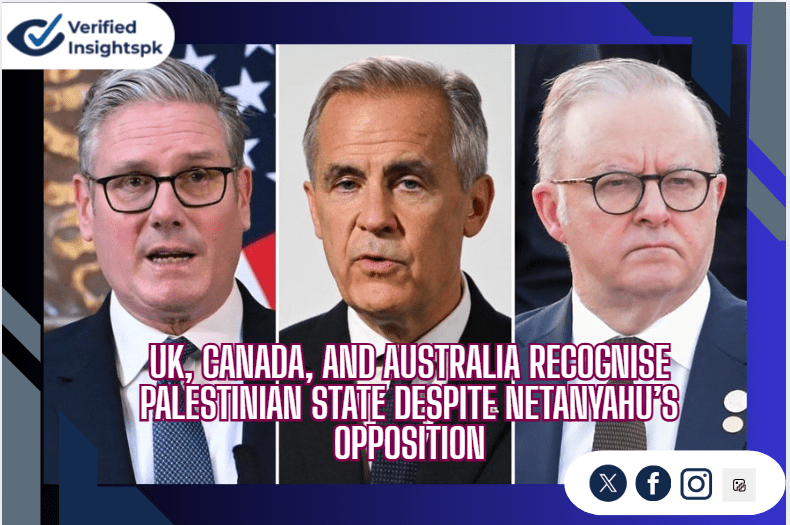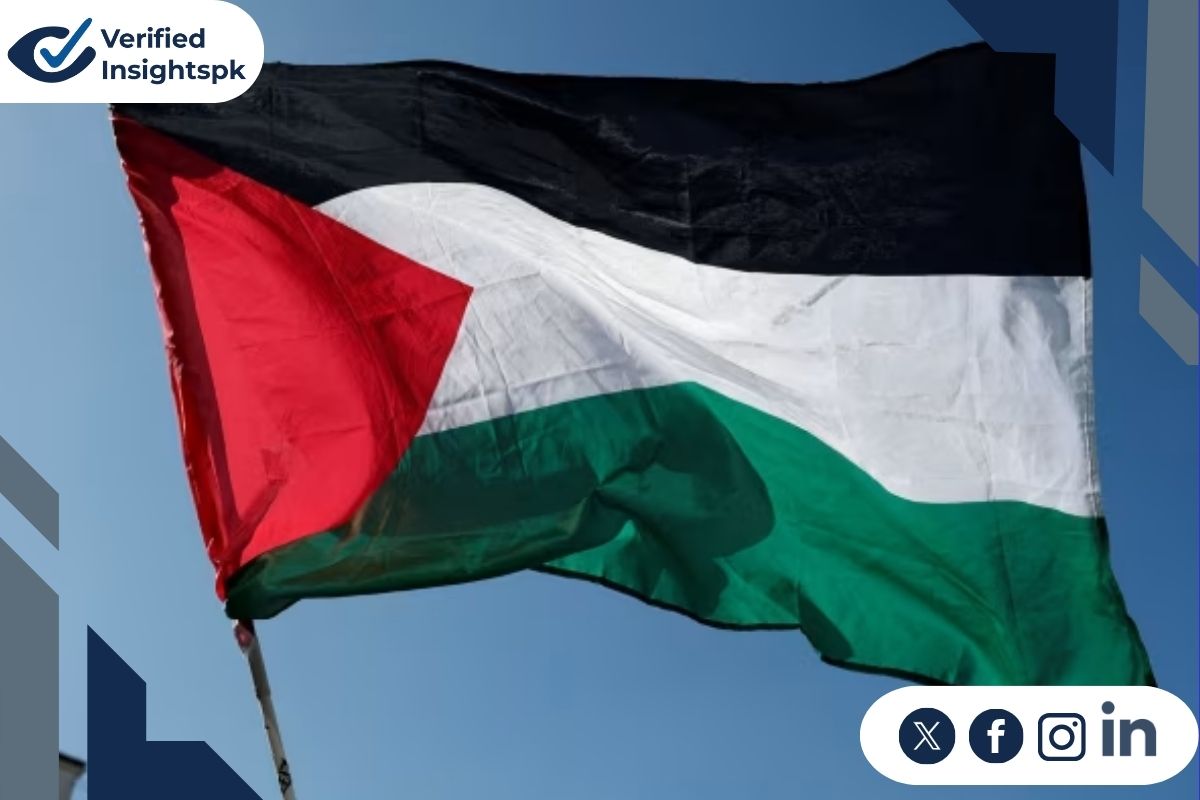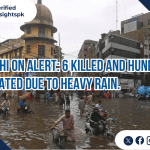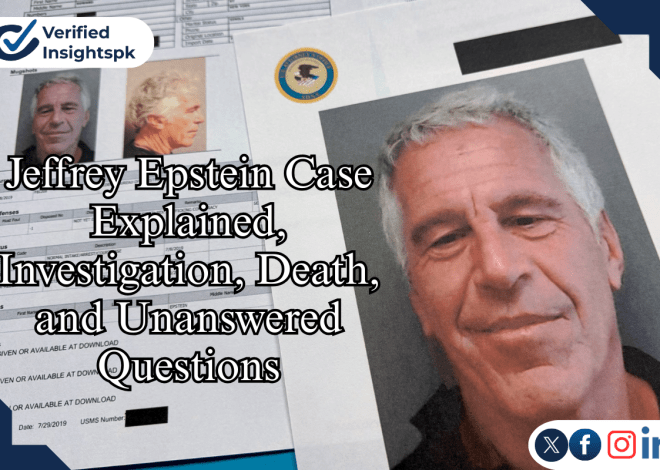
UK, Canada, and Australia Recognize Palestinian State Despite Netanyahu’s Opposition
A Historic but Controversial Move for a Palestinian State
Three major U.S. allies, the United Kingdom, Canada, and Australia, officially recognized the State of Palestine.
This was a historic step that broke from the United States’ long-standing position. “The UK recognizes Palestine”
It also came at a time when the conflict in Gaza and the West Bank was at its worst.
Prime Ministers Keir Starmer, Mark Carney, and Anthony Albanese announced the recognition on the same day.
Portugal also joined later, while France is expected to follow soon.
The decision has been described as a “last train” for the two-state solution.
But Israel’s Prime Minister Benjamin Netanyahu strongly rejected it, saying:
“A Palestinian state will not be established. It will not happen.”
Why Recognition Matters

Recognition of Palestine has long been a topic of debate.
For years, Western countries delayed the step, linking it to peace talks with Israel.
But now, after nearly two years of war in Gaza, leaders say the hope of peace is fading fast.
- UK Prime Minister Keir Starmer said the move was not a reward for Hamas.
- Instead, it was meant to revive hope for peace and a two-state solution.
- He called for “a safe and secure Israel, alongside a viable Palestinian state.”
Canada and Australia gave similar reasons, saying recognition is part of an international effort to keep peace alive.
Netanyahu’s Strong Response
Netanyahu called the recognition “a huge reward to terrorism.”
He argued that the step only encourages Hamas, the group still holding Israeli hostages from the October 7 attacks.
He repeated his promise to expand settlements and prevent a Palestinian state west of the Jordan River.
Other Israeli ministers reacted with anger:
- Itamar Ben Gvir and Bezalel Smotrich demanded full sovereignty over the West Bank.
- Opposition leader Yair Lapid blamed Netanyahu for what he called Israel’s “worst diplomatic crisis.”
Palestinian and Global Reactions
For many Palestinians, this recognition is symbolic but essential.
Some see it as a late but positive step, while others believe it changes little on the ground.
- In Gaza, some expressed hope it will pressure Israel to stop the war.
- In East Jerusalem, activists warned that the move only serves Western governments’ image.
Hamas welcomed the recognition, calling it an “important step” but demanded real measures such as ending the war and stopping settlement expansion.
- Globally, more countries are preparing similar announcements.
- France, Portugal, and New Zealand are all moving towards recognition.
- Already, over 150 countries in the United Nations officially recognize Palestine.
Why Now?
The decision comes amid:
- Rising civilian deaths in Gaza.
- Famine warnings by the UN.
- Rapid settlement expansion in the West Bank.
Western leaders say that without urgent action, there will be nothing left to recognize.
For Starmer, domestic politics also played a role:
- Labour’s manifesto promised Palestinian recognition.
- Pressure from voters and party MPs had grown.
- His government also faced criticism for past positions seen as too soft on Israel.
The Bigger Picture: A Two-State Solution in Crisis
The two-state solution has long been the world’s preferred peace plan.
It imagines an independent Palestine in Gaza and the West Bank, with East Jerusalem as its capital, living peacefully next to Israel.
But right now:
- Gaza is in ruins.
- Settlements in the West Bank are growing.
- Israel has openly rejected Palestinian statehood.
This makes the vision seem far away.
Still, supporters say the recognition keeps the idea of peace alive.
Conclusion
The step by UK, Canada, and Australia marks a turning point in international diplomacy.
It shows frustration with Israel’s policies and the deepening crisis in Gaza.
But recognition alone will not end the conflict.
As Prime Minister Starmer said, the challenge is to move from recognition to real negotiations and a lasting peace.
For now, the decision sends a strong message:
The world still believes in a two-state solution, even if Israel rejects it.










